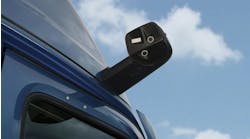Increasing vehicle complexity and changing maintenance needs are causing some fleets to consider turning maintenance of their vehicles over to someone else.
Before getting into key areas you need to consider when moving to contract maintenance, it’s important that you are clear about the type of support you are looking for to properly handle your account. Any contract maintenance provider needs to have a complete understanding of your operation in order to provide proper service.
- Do you already have a shop that someone could move into?
- What kind of equipment do you operate?
- What geographic areas do you operate in?
- What are the typical duty cycles of your equipment?
- Do you need mobile maintenance?
- What coverage is needed to support your operation?
- How old are your vehicles?
- Have they been properly maintained in the past?
Once you’ve answered those questions you can turn your attention to key areas to explore with potential contract maintenance providers.
- OEM relationships: What kind of relationship does the vendor have with your OEMs (original equipment manufacturer)? Can they get you preferred pricing if you need to purchase equipment? Does the vendor have the expertise to assist you with improving vehicle specifications to achieve more uptime, improve safety and reduce operating costs?
- Technician training: Do their technicians receive training on a regular basis? How many hours do they devote to training on an annual basis? What percentage of their technicians are ASE (Automotive Service Excellence) certified? Are technicians trained to work on the type of equipment you operate? Do they have the right tools and diagnostic software? What is their technician turnover rate? Who will support the shop from a leadership standpoint?
- Parts procurement: Purchasing power can play a significant role in keeping maintenance costs in check. This is especially true for items like tires, filters and lubricants. Can they get you the parts you need, when you need them, at a price you can afford? Ask them to do a price comparison on your 20 fastest moving parts.
- Oil analysis program: Do they believe in oil analysis and do they have an oil analysis program in place?
- Electronic maintenance records: How is maintenance work captured? Do you want them to use your existing maintenance recording system or will you switch to their system? Can they export data to your system if needed? What kind of reporting can they provide you with? How detailed is it? By unit? By system?
- Ability to file warranty: Can they file warranty claims directly with the manufacturer? It is extremely important that warranties be recouped for work performed within the shop.
- Driver training: At times it’s important to help train drivers to make them aware of changes to the equipment and how those changes effect maintenance.
- Union operation: Do they have experience working with unions?
While this may seem like a lot of ground to cover, when you move to contract maintenance you are trusting someone else to make sure your vehicles are maintained to the same high quality standards you employ. The operational efficiency of your fleet depends on finding the perfect provider to take over your maintenance so you can concentrate on what you do best — delivering freight. For more information visit www.transervice.com.


